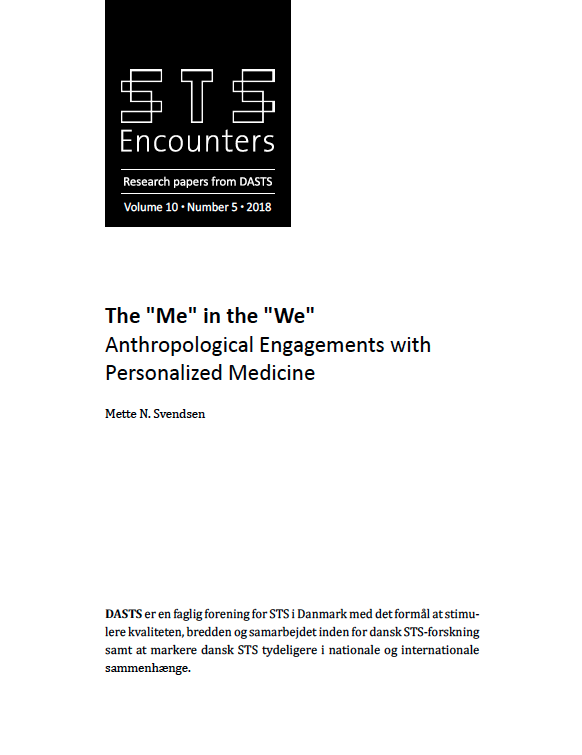The "Me" in the "We" Anthropological Engagements with Personalized Medicine
DOI:
https://doi.org/10.7146/stse.v10i5.135254Abstract
From the introduction:
No one can doubt the current relevance of personalized medicine in Danish society. "The state will steal your DNA" and "Critique: DNA project is high risk” are but two catchy newspaper headlines from a heated public debate about the planned state-run national genome bank in Denmark, Nationalt Genom Center. What has spurred discussion is the government’s suggested organizational and ethical framework for collecting, banking, and using genomes from the Danish people as part of its realization of personalized medicine in Danish health care. The framing of "stealing" and the articulation of this project as "high risk" points to the discussion’s central issue of how to treat and administer genomes as concomitantly part of the "me" of the person and the "we" of the welfare state. Anthropology has a lot to offer in understanding the intertwining of the person and the collectivity. But before I discuss what anthropology can bring to personalized medicine and this question, let me begin with what anthropology is.

Downloads
Published
How to Cite
Issue
Section
License

This work is licensed under a Creative Commons Attribution-NonCommercial-ShareAlike 4.0 International License.
Starting with volume 15, articles published in STS Encounters are licensed under Attribution-NonCommercial-ShareAlike 4.0 International (CC BY-NC-SA 4.0). The editorial board may accept other Creative Commons licenses for individual articles, if required by funding bodies e.g. the European Research Council. Previous articles are not licensed under Creative Commons. In these volumes, all rights are reserved to the authors of the articles respectively.




